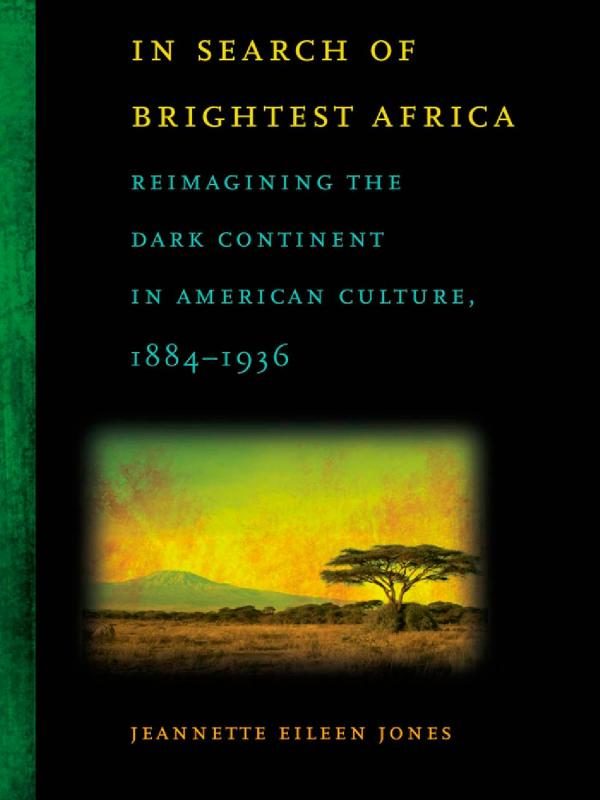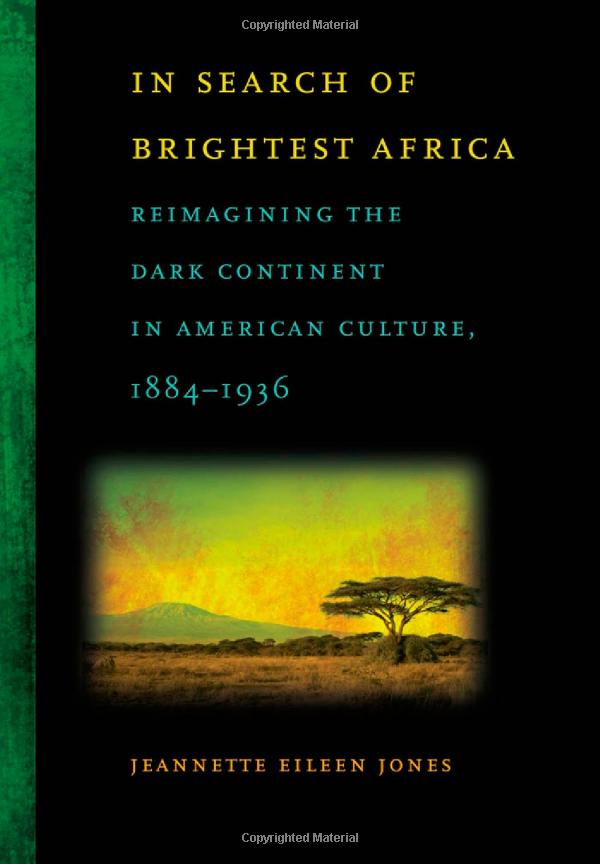
In Search of Brightest Africa: Reimagining the Dark Continent in American Culture, 1884-1936
Jeannette Eileen Jones
In the decades between the Berlin Conference that partitioned Africa and the opening of the African Hall at the American Museum of Natural History, Americans in several fields and from many backgrounds argued that Africa had something to teach them. Jeannette Eileen Jones traces the history of the idea of Africa with an eye to recovering the emergence of a belief in “Brightest Africa”―a tradition that runs through American cultural and intellectual history with equal force to its “Dark Continent” counterpart.
Jones skillfully weaves disparate strands of turn-of-the-century society and culture to expose a vivid trend of cultural engagement that involved both critique and activism. Filmmakers spoke out against the depiction of “savage” Africa in the mass media while also initiating a countertradition of ethnographic documentaries. Early environmentalists celebrated Africa as a pristine continent while lamenting that its unsullied landscape was “vanishing.” New Negro political thinkers also wanted to “save” Africa but saw its fragility in terms of imperiled human promise. Jones illuminates both the optimism about Africa underlying these concerns and the racist and colonial interests these agents often nevertheless served. The book contributes to a growing literature on the ongoing role of global exchange in shaping the African American experience as well as debates about the cultural place of Africa in American thought.
Where to Buy:

